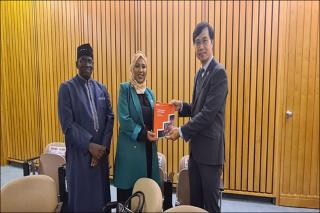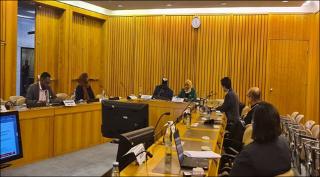| dc.description | The Launch of UNDESA's E-Government Survey 2022 was held at ECA on 14 October 2022 in Addis Ababa, Ethiopia. Despite multiple crises over the past two years, countries and municipalities have remained committed to pursuing digital government strategies — many implemented specifically to address the impacts of the COVID-19 pandemic. Yet, many have fallen short of providing adequate online services, according to the 2022 edition of the United Nations E-Government Survey – The Future of Digital Government.
South Africa, Mauritius, Seychelles, and Tunisia lead the 2022 digital government ranking in Africa, scoring the highest regarding the scope and quality of online services, the status of telecommunication infrastructure, and existing human capacity. Runners-up are Morocco, Egypt, Ghana, Cabo Verde, Algeria, Kenya, Gabon, Botswana, Rwanda, Cote d'Ivoire, Namibia, and Zambia – out of which three countries have moved to the high "E-Government Development Index" (EGDI) group for the first time (Côte d'Ivoire, Rwanda, and Zambia).
While the data shows general increases in online services for vulnerable groups, evidence of pervasive digital divides is stark. The countries with the lowest EGDI rankings are those in special and developing situations. A range of human-centered issues related to access, affordability, general abilities, digital literacy, and language are explored in the 2022 Survey.
The 2022 Survey shows that the future is hybrid and not digital --- but digital technologies allowed governments to play a key role in addressing the challenges surrounding the COVID-19 pandemic. Many African countries implemented digital measures, with a majority focusing on distance learning and vaccination services and others also providing telehealth and online scheduling for medical tests. The proportion of countries offering all four types of services is 40 percent in Africa. | en |


